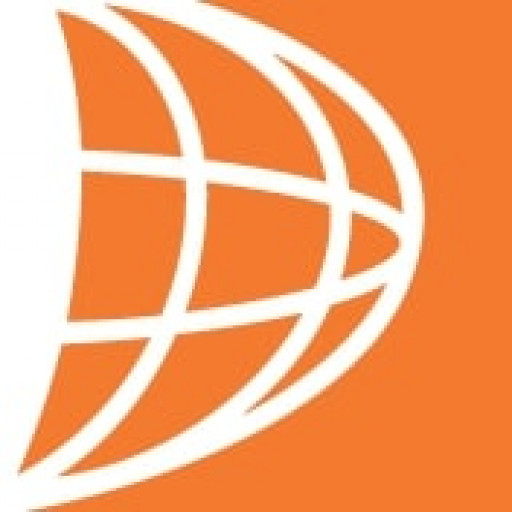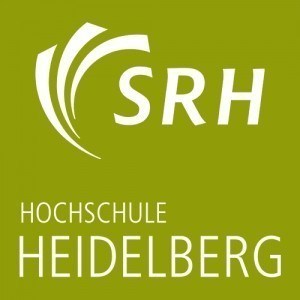International Management and Psychology at Rhine-Waal University of Applied Sciences is a comprehensive and interdisciplinary program designed to prepare students for leadership roles in the global business environment. The program combines core concepts of business management, strategic thinking, and organizational leadership with foundational and advanced topics in psychology, including human behavior, motivation, decision-making, and social dynamics. This integrated approach aims to equip students with a unique skill set that enables them to effectively manage diverse teams, understand consumer behavior, and implement psychological insights into business strategies.
Throughout the program, students will engage with a variety of courses that cover international business administration, marketing, finance, intercultural communication, as well as psychological theories and methods. Practical application is a key component, and students will participate in case studies, group projects, and internships that foster real-world experience and cross-cultural competencies. The curriculum is designed to develop critical thinking, analytical skills, and intercultural sensitivity, preparing graduates to excel in multinational companies, NGOs, consulting firms, and startups.
The program's teaching staff are experienced professionals and researchers committed to providing a high-quality education that balances theoretical foundations with practical relevance. Students have access to modern facilities, including specialized laboratories and collaboration spaces, supporting innovative learning and research activities. The program is delivered in English, attracting a diverse student body from around the world, which enriches classroom discussions and prepares students for international careers.
Graduates of the International Management and Psychology program will be well-equipped to pursue careers in management consulting, human resource management, international marketing, organizational development, and psychological consultancy. They will also have the opportunity to continue their studies at a master's level or engage in research activities in the fields of management and psychology. With a strong emphasis on intercultural competence, ethical considerations, and strategic problem-solving, this program aims to develop global citizens who are capable of making meaningful contributions to society and the economy.
Educational organisation
Students choose one of two module blocks in the winter semester:- Block A: Bionics of Locomotion and Control (with the modules Bionics of Locomotion and Control; Energy and Environment; Mechanics and Control)
- Block C: Bionics of Materials and Structures (with the modules Bionics of Materials and Structures; Materials in Structures; Joining Materials)
All students must also complete the following modules in the winter semester:
- Elective courses
- Development and Management
- Applied Research Project A
Students choose one of two module blocks in the summer semester:
- Block B: Bionics of Sensing (with the modules Bionics of Sensing; Sensors; Sensor Fusion)
- Block D: Bionics of Behaviour and Sociology (with the modules Bionics of Behaviour and Sociology; Business Biomimetics; Systems and Organisation)
All students must also complete the following modules in the summer semester:
- Elective courses
- Applied Research Project B
Students then write their thesis in the third semester.
Internships
NoneForms of assessment
Oral examinations, written examinations, laboratory reportsCourse objectives
Experts in bionics/biomimetics work in a highly interdisciplinary field which requires expertise in both engineering and biology. What's more, interest in potential uses for bio-inspired materials and machinery continues to grow in many sectors and industries, creating increasing demand for specialists in these fields.Bio-inspired materials and devices are of increasing interest in many fields of practical applications. The wide-ranging fields of activity and possible jobs include:
- industries and scientific institutions focusing on micro-/nanotechnology
- biomaterials industry
- energy technology
- bioengineering
- engineering offices
- research institutions
- service providers and experts specialising in biomimetics
Language requirements
Please note that for Master's degree programmes English language skills at level C1 according to the Common European Framework of Reference are required. Please be aware that all applicants' test report form numbers will be checked. The following certificates are accepted:IELTS: 6.5 or higher
TOEFL (internet-based test): minimum 100
TOEFL (paper-based test): minimum 560
TOEFL (computer-based test): minimum 220
The TOEFL code of our university is: 6962
Academic requirements
- A completed BSc degree course in a corresponding course of study
- at least 210 ECTS points or, ideally, a total study time of seven full-time semesters (for Bachelor's graduates with less than 210 ECTS points, entry requirements can be secured by taking defined modules)
- proof of sufficient knowledge of English language (at least level C1 according to the Common European Framework of Reference (CEFR))
Enrolment fees
Approx. 270 EUR per semester. This covers nominal administration fees and includes a semester ticket that allows free travel on most bus and train routes throughout the state of North Rhine-Westphalia as well as to and from Nijmegen in the Netherlands.Costs of living
The "Deutsches Studentenwerk" puts the average cost of living for students in Germany at around 700 to 800 EUR per month. This includes rent, utilities, personal expenses, and other nominal costs. For a sample breakdown of living expenses and information about financing your studies in Germany, please see our website: http://www.hochschule-rhein-waal.de/en/academics/students/costs-scholarships-and-grants.Job opportunities
International students from non-EU countries are legally permitted to work 120 full days or 240 half days per year on a student visa. No additional authorisation from German authorities is required.Rhine-Waal University of Applied Sciences often posts job advertisements for students both inside and outside the university on campus noticeboards. Some jobs at the university only require English, but most jobs in Kleve, Kamp-Lintfort, and surrounding areas will require at least conversational fluency in German. Fortunately, our Language Centre offers German courses that students can attend at no charge.
However, due to the intense workload at Rhine-Waal University of Applied Sciences, first-year students are strongly advised to dedicate their full attention to their studies. In later semesters, you will have a more open schedule and a better idea of how to balance work and studies. This is also a realistic time frame for acquiring speaking proficiency in German while studying full-time.
Funding opportunities within the university
A limited number of scholarships are available for currently enrolled students at Rhine-Waal University of Applied Sciences. The most prominent scholarship is the Germany Scholarship ("Deutschlandstipendium"). German and international students are both eligible to apply. The Germany Scholarship is a stipend of 300 EUR per month awarded each year to a limited number of students who have demonstrated excellent academic performance or exemplary social commitment to the community. Other scholarships, grants, and fellowships are available through regional and national organisations in Germany. Please see our website for details.Rhine-Waal University of Applied Sciences informs all students of important scholarship deadlines in advance so that they don't miss any potential application opportunities.
http://www.hochschule-rhein-waal.de/en/academics/students/costs-scholarships-and-grants/scholarships-and-grants
Arrival support
Rhine-Waal University of Applied Sciences is accessible from the international airports Amsterdam (AMS), Düsseldorf (DUS), Cologne/Bonn (CGN), and Weeze (NRN). The university does not offer any pick-up services, but both Kleve and Kamp-Lintfort can be reached by public transportation from any of these airports.If you anticipate any travel problems, delays, or unexpected changes to your plans, please contact our Welcome Centre so that we can support you with helpful advice.
Services and support for international students
Our Welcome Centre supports international students during their first few weeks in Germany. The Welcome Centre provides helpful advice and guidance on contracts, opening a bank account, registering your place of residence, applying for a student visa, setting up health insurance, and more.The student mentors at the Welcome Centre know first-hand what it's like adjusting to life as a student in Germany. They are also an important first contact point for students with personal and social issues, as they can direct students to the right place for their specific needs. The Welcome Centre also promotes student culture at the university by organising trips and excursions to destinations all around the region as well as a range of social events for students such as the annual "Freshtival", the university's week-long orientation festival for new students in the winter semester.
Accommodation
Rhine-Waal University of Applied Sciences strongly urges you to make accommodation arrangements before your arrival. The university does not have its own residence halls, but the "Studierendenwerk Düsseldorf" runs dormitories near campus in Kleve and Kamp-Lintfort with options for single rooms or two- and three-room flats. Prices start at around 220 EUR per month. Room availability in these dormitories is limited and subject to a waiting list, so it's important to register online for a room as soon as possible. Please note that a security deposit of three months' rent is also required.Most students choose to share a private flat off campus with fellow students. There are a number of popular online portals for finding a flat in Germany, for example: http://www.wg-gesucht.de. Rhine-Waal University of Applied Sciences also maintains its own list of available flats and rooms for students on its website. Thanks to the flexibility of the Semester Ticket, students can live in Kleve, Kamp-Lintfort, or one of the many cities and towns nearby and reach campus by public transport. For more information and helpful tips on finding a flat, please see our website: http://www.hochschule-rhein-waal.de/en/academics/prospective-students/housing.








